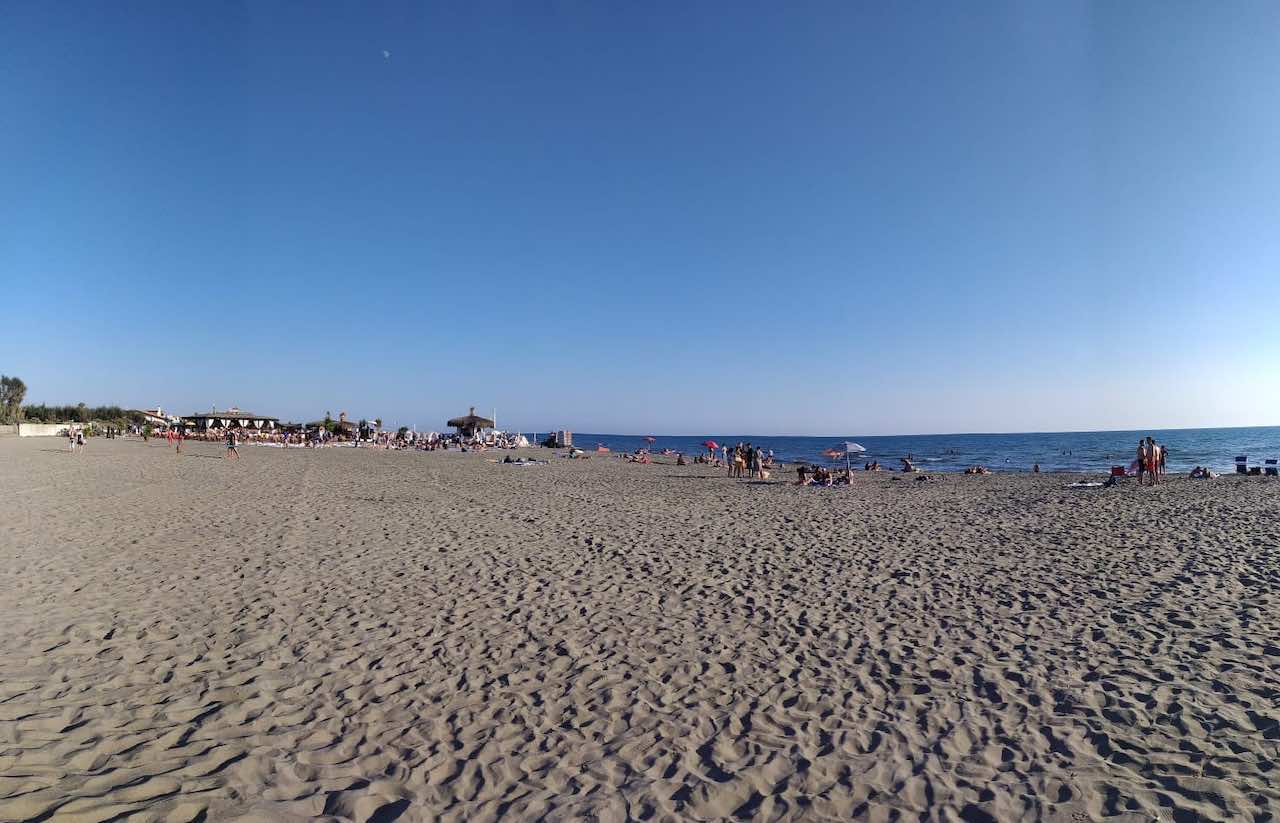Sun, sand, chaos on Italy’s beaches as concession holders cry foul

FREGENE, Italy — On the beach at Toni’s seaside business, tanned sunbathers relax on lounge chairs under sunny skies as blue waves lap the sand in a scene of time-honored Italian idyll.
But beneath the surface rages a longstanding battle over Italy’s public beaches, and whether the shoreline’s ubiquitous beach operators will continue to enjoy concessions often passed down through generations.
On Friday morning, at the height of the summer season, they closed their colorful umbrellas in a two-hour protest, saying pressure from the European Union and a lack of support from the hard-right government of Giorgia Meloni, is threatening a venerated cultural tradition itself.
“The entire economy that revolves around seaside tourism is in crisis,” concession holder Antonio Meneghini, 62, told AFP.
Italy and its beach clubs go hand in hand in summertime like flip flops and sunscreen, with mostly family-run operators providing services from umbrellas, chaise lounges and showers to bars and restaurants that clients can enjoy.
In certain areas, like Rimini on the Adriatic coast, private establishments holding concessions can swallow up to 90 percent of beaches.
The phenomenon is growing. The Union of Chambers of Commerce said this week there were 26 percent more beach operators today than in 2011.
Inertia in the way Italy manages its beaches is longstanding.
Governments of every hue — hesitant to risk the ire of the powerful operators’ lobby — have repeatedly ignored EU warnings over the past two decades to open up the sector to competition and reform the way it automatically renews beach concessions.
Activists, meanwhile, say the state has allowed private interests to profit from a public resource belonging to everyone, while paying the state a pittance in exchange.
Some estimates show the state receiving 115 million euros ($126 million) a year for concessions from an industry worth 15 billion.
Beach operators have been in legal limbo since Dec. 31, when their concessions expired, as ruled by Italy’s top administrative court, the Council of State.
But hopes the government will pass national legislation to clear up regulatory uncertainty faded this week, when the government shelved the issue until summer’s end.
“It’s the Wild West. We need certainty. There’s so much confusion,” said Antonio Capacchione, president of the operators’ SIB trade union.
He accused the government of being incapable of managing the problem.
Local authorities, ordered to call for tenders by the Council of State, hesitate to do so, looking to the national government for direction.
‘Sentinels of the sea’
Meneghini still owns the original 1936 concession accorded to his grandfather, Antonio, to operate the first establishment of its kind on the stretch of coast due west of Rome.
After the war, the original Toni cleared German mines from the beach.
Today, all five members of the family work in the business, plus 20 to 25 seasonal workers.
“We were sentinels of the sea,” Meneghini said. “There’s a whole history behind this. But now they’re saying: ‘Thank you. You can go.'”
Not everyone agrees that Italy’s nearly 7,250 beach operators should be given special privileges.
Up the coast in Livorno, Tuscany, activist Claudia Gazineo planned on Friday to storm an establishment she said was charging seven euros merely to access the sea.
The Mare Libero (Free Sea) activist described illegal gates and turnstiles put up by the operators in the area.
“If you want to look at the sea, you have to do it through these bars,” Gazineo told AFP. “It’s absurd because the sea is for everyone.”
Last month, consumer protection association Codacons accused some operators of “speculation”, petitioning port authorities to revoke concessions to establishments charging “exaggerated” prices.
In some areas, weekly prices to rent a chaise longue and umbrella can reach 340 euros. The average is 226 euros, according to a June study by consumer group Altroconsumo.
‘Slavery of the umbrella’
Supporters of Italy’s current system argue that open competition mandated by the EU means foreign multinationals could enter the sector, raising prices and diluting the sector’s “Italian-ness”.
Others cite the danger of mafia infiltration.
Mare Libero is calling for 50 percent of beaches to be considered “free”, accessible to everyone.
Today, they are often small, poorly maintained and hard to find.
Italy’s tourism minister, Daniela Santanche, said in 2022 they were filled with “drug addicts and garbage.”
Back in Fregene, a barely visible sign indicated the way to the town’s free beach where Primo Massimiani, 70, was lounging on his towel.
The promise of sitting on the beach rubbing shoulders with a neighbor held no appeal, said Massimiani.
He railed against the “slavery of the umbrella, of paying for entry, of the beach chair”.
“I rightly consider it a form of slavery, an almost illegal exploitation of what is a common good — the shores and beaches.”
AFP is one of the world's three major news agencies, and the only European one. Its mission is to provide rapid, comprehensive, impartial and verified coverage of the news and issues that shape our daily lives.

















